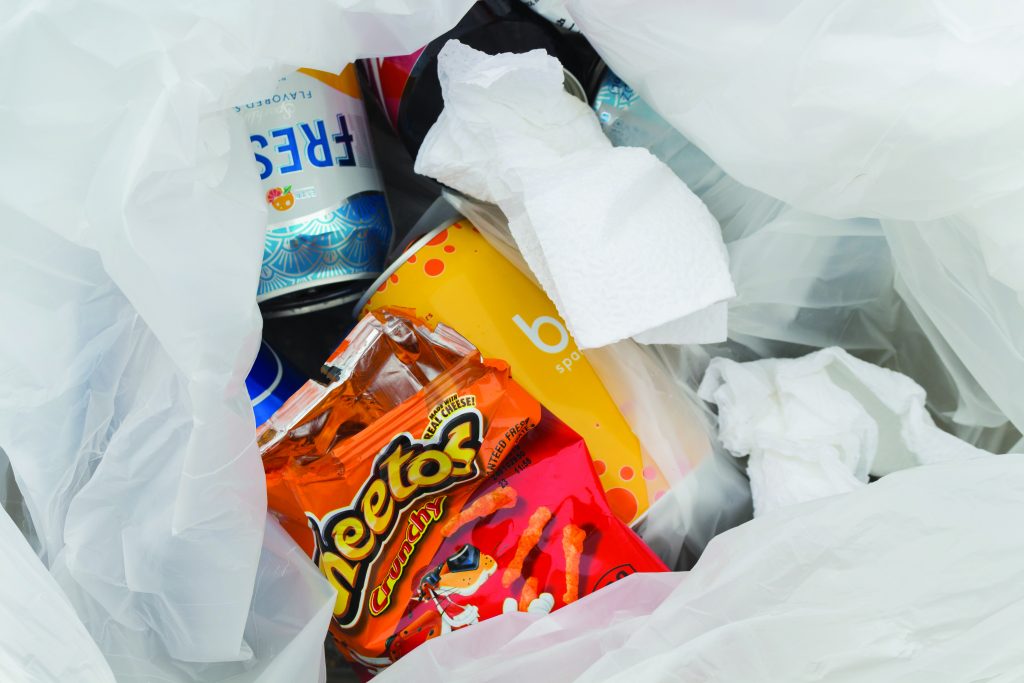
Paul F. Davis | Managing Editor
Human-made environmental problems are showing — climate change and severe contamination — and they are killing our planet. Luckily, the solution is here — ban single-use plastic bags. Nope, sadly our earth’s human-made contamination is much too multifaceted to solve just by making plastic bags fly into the past like they fly away in a slight breeze.
Still, feel-good laws like these don’t actually have a large enough impact on future environmental issues. Even so, Oregon State Legislature passes bills like House Bill 2509 into law. Chiefly sponsored by Carla C. Piluso, the bill states that retail establishments statewide can only provide recycled paper bags for customer use. This will reduce the amount of single-use plastic bags consumed in Oregon. However, with the requisite reduction of plastic bags, there will need to be an equal increase in paper and reusable bags. According to the UK’s Environmental agency, “paper bags must be used three times” to neutralize its environmental impact, relative to plastic.
With that in mind, paper bags are objectively worse than plastic bags. This conclusion was made because the United Kingdom’s Environmental Agency found that paper bags require four times as much water to produce than plastic bags, and the trees that are used to create paper bags are contributors to acid rain. Not to mention, it requires seven trucks worth of paper bags to equal the number of plastic bags carried in on one semi-truck carrying plastic bags. But most importantly, have you used a wet paper bag?
What needs to be known is that being “environmentally-friendly” is much more complicated than “will it compost or not?” True environmentally-friendliness comes from what is called a life-cycle assessment of a good.
These life-cycle assessments take into account all facets of a product’s environmental footprint, including but not limited to: water usage, the toxicity of after products, the energy necessary to produce, what it took to manufacture the raw materials needed and the transport after production.
We already know the best and basic steps to at least work towards a more environmentally friendly attitude: reduce, reuse, recycle.
Reduction is accomplished mostly by asking yourself, “do I really need this?” Do I need these takeout utensils, or should I use my own that I have at home? Am I buying this new phone because I need it, or because I want to look a certain way?
Reuse can be as simple as using your new fancy paper bag as a trash bag or by buying refurbished technology — which is cheaper, too.
For those that don’t know how to recycle, the most important thing you can do is contact your local recycler and ask what you can and cannot recycle; some recyclables can be recycled but some areas don’t have the technology to do so. For example, even though paper cups given to you at Starbucks or Dutch Bros say that they are recyclable, most areas cannot actually recycle them because there is thin plastic layer on the inside of every cup that requires a special technology to remove said layer.
Being environmentally-friendly can be hard, but if you work on being intentional with your choices you can make huge difference in your environmental footprint.
Tips based on information provided by the Environment and Ecology website
- Buy refurbished technology rather than new technology
- Drink vegetable-based milk instead of cow’s milk
- Go paperless for your bills
- Invest in reusable utensils
- Reduce the amount of meat you eat
- Reduce the single-use food and drink containers you use
Contact the author at pfdavis14@wou.edu
Photo courtesy of Paul F. Davis

